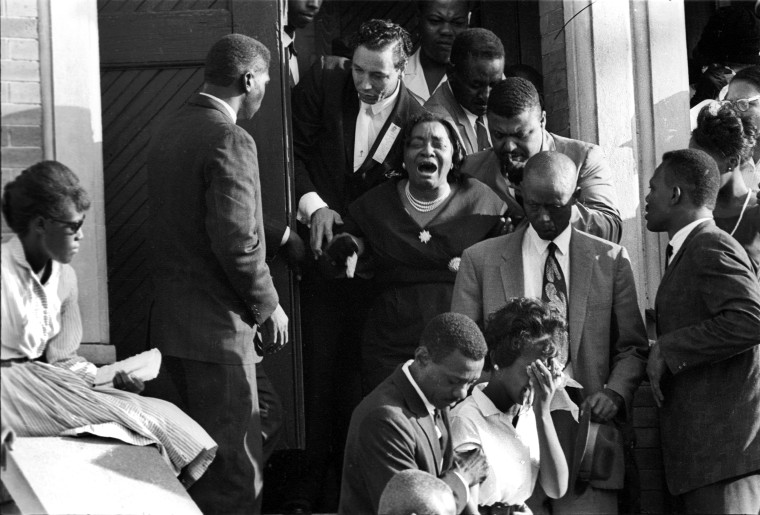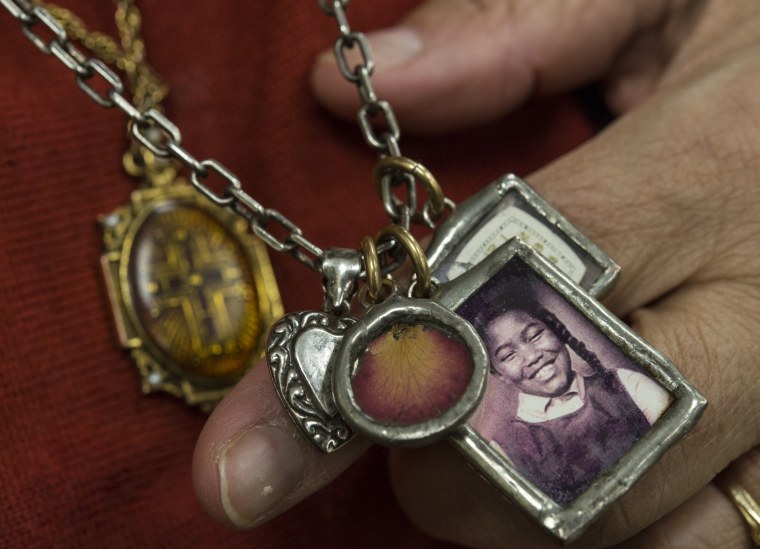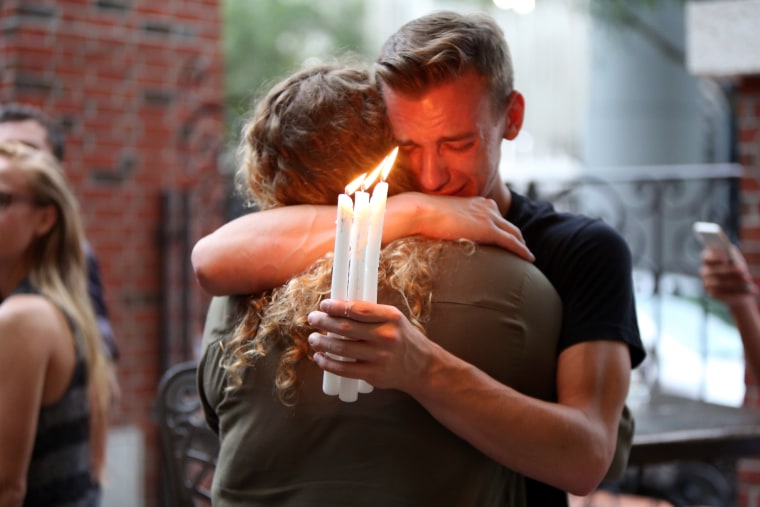It was an early September morning. Sunday school had just let out. Four preteen girls were busy doing what girls their age do; chatting excitedly with each other as they primped in a church bathroom while preparing to take part in a youth service.
They never made it upstairs to the sanctuary.
Just as one girl was adjusting the sash draped over another girl’s frilly dress, a bomb planted by white supremacists exploded in the basement of their church, packed with worshipers. Chaos ensued as flames and thick smoke swept through the place of worship.

Addie Mae Collins, 14, Carol Denise McNair, 11, Carole Robertson, 14 and Cynthia Wesley, 14, were killed in the explosion at the 16th Street Baptist Church in Birmingham, Ala. on Sunday, September 15, 1963, a blast so intense that one of the girls' bodies was decapitated; her body so badly mutilated that she could only be identified through her clothing and a ring. Another had been killed by a piece of mortar embedded in her skull.
More than 20 others were injured in the blast, including Addie Mae's younger sister, 12-year-old Sarah Collins, who was left blind in one eye after 21 pieces of glass embedded in her face. I credit my days as a cub reporter at The Birmingham Post-Herald newspaper and filmmaker Spike Lee’s documentary “Four Little Girls” for educating me on the gory but pertinent details of this heinous crime.
RELATED: Orlando Massacre: Names of Gay Bar Shooting Victims Emerge
The then-pastor of the church, the Reverend John Cross, would later say that the four slain girls' bodies were found "stacked on top of each other" as if they’d clung together in the midst of the terror waged upon them in, of all places, a church.

Fast forward to June 2016 and once again on a Sunday morning we awoke to more tragic and heartbreaking news – a deadly shooting rampage at an Orlando gay nightclub. As of this writing, at least 49 people were confirmed dead and 53 were injured in the attack at Pulse. Twenty-nine-year-old Omar Saddiqui Mateen, the man authorities have identified as the shooter, was ultimately taken down in a hail of police SWAT team gunfire.
Will we allow Orlando to become the same defining moment for the America we live in today?
Mateen is no different from the four Ku Klux Klansmen (later identified as Thomas Edwin Blanton, Jr., Herman Frank Cash, Robert Edward Chambliss and Bobby Frank Cherry), who planted at least 15 sticks of dynamite beneath the front steps of the historic church. Mateen is also believed to have had explosives on his person.
I’m not seeking to engage in an age-old religious debate about homosexuality. Nor am I trying to force anyone to connect the gay struggle to that of the fight for civil rights among African Americans. That’s not my place.

What is a fact, however, is that Pulse was filled with hundreds of innocent people who were merely trying to enjoy a night out on the town. One can only imagine all of the bathroom primping, text message exchanges and “selfies” that these victims engaged in just before stepping into what has been billed “the hottest gay bar in Orlando” – none of them should have left in body bags.
I agree with President Obama’s statement on the tragedy, undeniably reminiscent of the words of the late, great Dr. Martin Luther King Jr. I might add, that, “attacks on any American, regardless of race, ethnicity, religion or sexual orientation is an attack on all of us” in this country.
RELATED: Florida Nightclub Massacre Is Deadliest Mass Shooting in U.S. History
If there were a bright side (and it surely was hard to find one) in the 16th Street Church bombing, it is that it is widely credited with marking a “turning point” in the civil rights movement and as one of the biggest contributors to the support needed for the passage of the groundbreaking Civil Rights Act of 1964. The question is, will we allow Orlando to become the same defining moment for the America we live in today?
We can only pray that what happened in the “Sunshine State,” home of Disney World and pristine sandy beaches will finally be that “turning point” of our time; that moment when we, as a nation, finally accept the reality that these massacres won’t ever end without us engaging in some serious dialogue about gun violence, homophobia, domestic terrorism, racism, sexism, radicalism and discrimination overall. Those talks, however, must be backed up with public policy aimed at radical and measurable change.
Ironically, last week I heard this quote for the first time: “compassion without action is not enough.” We need to take that to heart in these coming weeks as 50 families bury their loved ones because of a hate crime and terrorist attack that should not have been allowed to happen.
Orlando needs our proverbial “thoughts and prayers,” but our entire nation needs our leaders to take action. Without swift and targeted intervention, what happened at Pulse will reign briefly as the “deadliest mass shooting in U.S. history” … until the next one.
